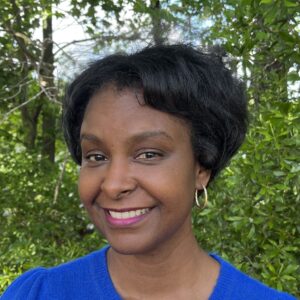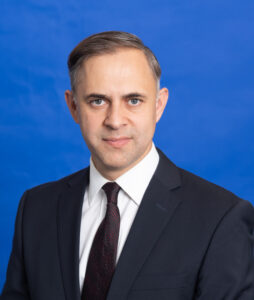Below are the ICCWS Biographies of the Conference and Programme Chairs, Key Note Speakers and Mini-Track Chairs.

Dr. Stephanie J. Blackmon is an associate professor, higher education leader, and technology researcher whose work focuses on privacy and technology integration; technology integration in college and university teaching and learning; technology integration in training; educational technology such as learning management systems (LMSs) and various course types such as massive open online courses (MOOCs); ethical integration of technology such as learning analytics and artificial intelligence; and leadership and experiential learning in technology and cybersecurity workforce development. Dr. Blackmon’s research often involves working with interdisciplinary teams, and she has been a lead PI on several grants related to trust, privacy, and experiential learning in technology and co-PI on grants related to AI and workforce development, and cyber-clinic design and delivery. Dr. Blackmon’s work also involves policy and framework development designed to support ethical technology integration, as well as ethical technological development.
Dr. Saltuk Karahan is the Undergraduate Program Director of the School of Cybersecurity at Old Dominion University (ODU). He is also the Cybersecurity Education Research Director for COVA CCI (Commonwealth Cyber Initiative). He has been teaching undergraduate and graduate level courses, including Cyber War, Leadership and Management in Cybersecurity, and Advanced Cyber Law and Policy at ODU. He is a Co-PI on the NSF-funded CyberCorps® Scholarship for Service Project that aims to increase the federal, state, local, and tribal workforce in cybersecurity. Before joining ODU, Dr. Karahan assumed leadership positions at NATO's Allied Command Transformation. Dr. Karahan’s research interests and projects focus on the central themes of the interdisciplinary approach to cybersecurity education and how the developments in information security technology impact international security.
Key Note Speakers
Mini Track Chairs

Dr. Joe Adams is the Founder and President of Cyber By Design, LLC. Retiring as a Colonel in the US Army Signal Corps, his career included postings as an Associate Professor at the US Military Academy and as the Chief Information Officer of the National Defense University. He created the Michigan Cyber Range and, most recently, took a position as an Associate Professor at Virginia Tech. Joe earned a B.Sc. in Computer Engineering from Syracuse University and a M.Sc. in Computer Systems Engineering from the University of Arkansas. His Ph.D. is in Computer Engineering from Virginia Tech.
Arun Mamgai has over 20 years of experience in cloud-native cybersecurity, application modernization, open-source secure supply chain, AI/machine learning, and digital transformation, including balanced scorecard, while working with Fortune 1000 customers across industries. He has published many articles highlighting the use of Generative AI for cybersecurity and developing secure cloud applications. He has also developed a Balanced Scorecard based framework for CISOs, and has been invited to speak at international conferences and universities on various topics like “digital transformation”, “Application-level attack in connected vehicle ”, "Generative AI and Cybersecurity", in addition to being a judge in industry-leading events. He mentors start-ups and actively engages with a nonprofit institution that enables middle school girls to become future technology leaders.

Prof Nolu Mpekoa is an Associate Professor at the Academy of Computer Science and Software Engineering, and also adjunct professor at the Department of Information Technology, Faculty of Informatics, at Cape Peninsula University of Technology, and an NRF Y-rated researcher. She has more than sixteen years of lecturing experience and has taught modules such as Computer Systems, Computer Security and Networking. She currently teaches Informatics and Information Security. Prof Mpekoa has a driven robust passion in the area of Mobile Technologies, M-Services (e-Government and M-Government), and mobile security.
Dr. Aunshul Rege is an Associate Professor and Director of the Cybersecurity in Application, Research, and Education (CARE) Lab at Temple university. Her research efforts focus on the human behavioral aspects of cyberattacks and cybersecurity, which has been funded by several National Science Foundation grants. She created the (inter)national Social Engineering (SE) Competition and she serves as the research lead for the SE Community at DefCon. Aunshul has a B.Sc. in Computer Science from the University of British Columbia, a B.A. (Hons) and M.A. in Criminology from Saint Mary’s University, and a Ph.D. in Criminal Justice from Rutgers University.



